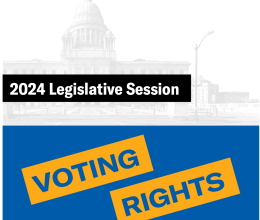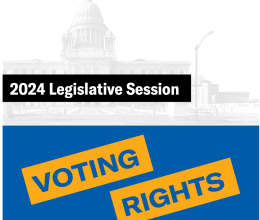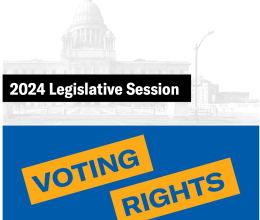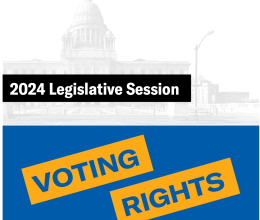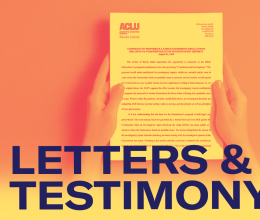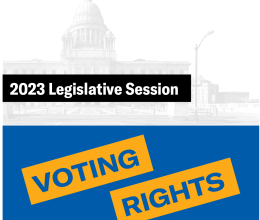Following up on its lawsuit filed two weeks ago on behalf of the Moderate Party of Rhode Island (MPRI), the ACLU is asking a federal judge to temporarily halt the state from distributing to the two major political parties funds contained in a so-called “nonpartisan account” consisting of “donations” made by taxpayers on their tax return. The law authorizing the account excludes independent candidates and new political parties, like MPRI, from any of the disbursement.
In a 16-page brief filed today by RI ACLU volunteer attorney Mark W. Freel on behalf of MPRI, seeking a temporary restraining order against implementation of the law, the ACLU argues that “fundamental rights are at stake.” Since the law requires the General Treasurer to distribute the funds by September 1st, the brief notes that “once the funds are distributed, it will be difficult – if not impossible – for the Court to ‘unring the bell’ and unwind the distributions,” leaving MPRI without any effective remedy for the violation of its rights.
The suit argues that the statute unconstitutionally “grants windfalls to the parties that least require public funds to compete politically” and that “no government interests justify sponsoring the political operations of some qualified parties but not others.”
Taxpayers are permitted to make a political party “contribution” on their tax return in the amount of $5 toward the public financing of the electoral process. The taxpayer can designate receipt of the first $2 of the contribution to a political party of his or her choice. Any donation above that amount, or any donation not specifically designated for a particular party, is allocated to a “nonpartisan account.” The state pays 5% of funds in the nonpartisan account to the political party then holding each of the four statewide general offices other than Governor. The state distributes the remaining 80% of the funds “to each political party in proportion to the combined number of votes its candidates for governor received in the previous election,” thus freezing out any new political parties from gaining a share of those funds.
Last year, the RI ACLU successfully represented the Moderate Party in challenging another statute that had barred new political parties from collecting in an off-election year the signatures necessary to gain state recognition as a party. No date on the ACLU and MPRI’s request for a hearing on a temporary restraining order has been set.

